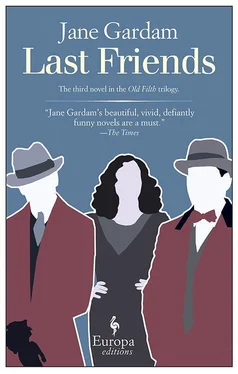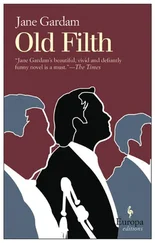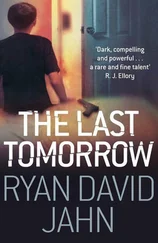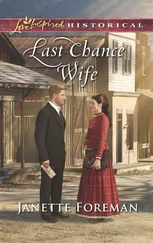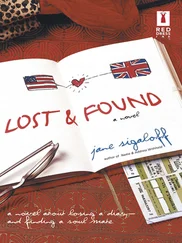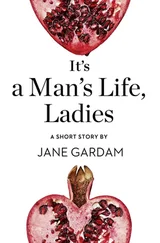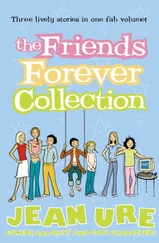* * *
‘Thank you,’ Dulcie said to the milk-drinking Michael on the way back from the sea to the Cleveland Hills.
‘Pretty great, in’t she?’
‘What a memory.’
‘Aye, but Dulcie — what a terrible life.’
‘Michael, I don’t think so. Oh good! Look,’ for here was the Donhead car in the forecourt of the hotel. ‘Oh thank God! She’s back from the hospital. Now we can go home.’
But the next morning they were both still at the hotel. Henry was being kept in hospital for another day and arrangements had to be made for an ambulance.
‘We’ll drive in convoy,’ said Anna, ‘you and I in the car. It’ll be rather slow. But more restful than the journey up. Today, I’ll go to the hospital and see the surgeon and arrange about physio. But what will you do?’
‘I’ll go to Lone Hall again.’
‘But you said it was grim.’
‘Yes. But I can’t stop thinking about him all alone in it.’
‘I hope you’re not thinking of joining him in it?’
‘Don’t be ridiculous Anna. I shouldn’t tell you this, but I can’t really afford Privilege House anymore and it’s in very good condition. This one needs a million pounds spending on it. Dear Anna — it’s idle curiosity that’s all. Could they get me a lift up there and back d’you think? The hotel?’
They could. She did. The ghillie was on his way up there now. He was meeting a possible buyer.
‘But would he let me in?’ she said. ‘I want to go round it alone.’
‘Dulcie?’
‘I tell you, Fiscal-Smith’s not there. He’s gone to Hong Kong.’
‘Look — it has nothing to do with you where Fiscal-Smith lives. He’s only there because he can’t shake off his childhood. That’s why he’s such a bore , Dulcie. You deserve better. Or just memories of Willy. Fiscal-Smith clings to his miserable past like a limpet to a rock.’
‘I don’t think anyone has ever loved him,’ she said.
‘I’m not surprised.’
‘Anna, you are being unpleasant. Fiscal-Smith is pathetic because he doesn’t know how to love. But there’s a For Sale notice up and this time — he never tells you anything — something must have happened. I believe, Anna, that he’s a virgin.’
‘I hope you’re not thinking of doing something about that.’
‘That will do, Anna. We don’t talk like that. And I’d be glad if you tell nobody that I’m short of money.’
‘Oh — ah! Well, well — Fiscal-Smith’s worth millions, just like the other two. Now I understand.’
‘I hope we are not about to quarrel, Anna.’
* * *
The ghillie dropped her off and she was allowed to go alone into the gaunt, wind-blown house on the moor. ‘I’m glad you trust me,’ she said as he handed her a key the size of a rolling pin. ‘I can tell a good woman,’ he said. ‘Ye’ll not pilfer. And it suits me because I have to wait outside for the estate agents. They’re bringing in a possible buyer. Some lunatic. I’ll look him over. Off ye go now and mind ye take care on the boards.’
‘Is it clean?’ she said.
‘Och, aye, it’s clean.’
Inside Fiscal-Smith’s Lone Hall, the smell of wood fires and heather. No carpets, no curtains and very little furniture. A kitchen range like a James Watt steam engine, rusted and ice-cold, a midget micro-wave beside it, an electric toaster, almost antique. Taps high above a yellow stone sink, and an empty larder. An empty bread-crock, a calendar of years ago marked with crosses indicating absences abroad. All colourless, clean, scrubbed. Eighteenth-centry windows, light flowing in from moor and sky.
Where did he sleep? Where did he eat? Where did he read — whatever did he do here ? Room after room: empty. Not a painting, not a clock, not a photograph.
On her way out she opened a door on the ground floor behind a shabby baize curtain. The room within was cold — another tall window, unshuttered, the walls covered with shelves and upon them row upon row of boxes all neatly labelled. There was a man’s bike with a flowing leather saddle and a round silver bell. It stood upside down. A very old basket was strapped to the handlebars. On a hook nearby hung a dingy white riding-mackintosh with brass eyelet holes under the arms. It hung stiff as wood. There was a black, tinny filing-cabinet labelled ‘Examination Papers’. There was no sign anywhere of a woman’s presence, or touch.
There was a complete set of the English Law Reports in leather, worth several thousands of pounds — Dulcie knew this because she had recently had to sell Willy’s. There was an iron bed, like the campaign bed of the Duke of Wellington. Beside the bed, a missal, its pages loose with wear. Then she saw, on the wall behind her, a photograph of familiar faces: Willy waving. Herself in a rose-scattered hat — my! Wasn’t I gorgeous! Those tiresome missionaries in Iran. Eddie Feathers, magnificent in full-bottomed wig, Veneering cracking up with laughter, holding golf-clubs, hair flying. Drunk. Row after row of them and no girl-friends, no children, no-one who could have been Fred’s invisible, ailing mother. In the dead centre of the collage was a wedding group outside St. James’s church, Hong Kong. Eddie Feathers, so young and almost ridiculously good-looking in his old-fashioned morning suit and bridegroom’s camellia; the bride Elizabeth — darling Betty — in frothy lace, with a face looking out like a baby at its christening.
And there, beside her, astonishingly in a tee-shirt and what must have been the first pair of jeans in the Colony, was Fiscal-Smith the super-careful conformist, never wrongly-dressed. Asked to be best-man at the last minute, his face was shining like the Holy Ghost. The best day of his life.
No sign of Veneering in this photograph. No sign at all. Nor of Isobel Ingoldby, the femme fatale.
Willy was there. Oh, look at us, look at us! Still damp from our cocoons!
* * *
But it was the huge floor of the room in Lone Hall that held Dulcie now. It was slung from end to end with swathes of tiny metal ‘Hornby’ rolling-stock: points, buffers, level-crossings, signals, water-pumps, platforms, sheds, long seats, lacy wooden canopies, slot-machines; luggage trolleys like floats with unbending metal handles long as cart-shafts. Portmanteaux, trunks, Gladstone bags, sacks red and grey and all set up for midgets. And calm, good midgets stood in dark-blue uniforms blowing pin-head whistles, punching pin-holes in tiny tickets. Branch-lines swung far and wide, under the Duke of Wellington’s bed, and were criss-crossed by bridges, paralleled by streams where tiny men in floppy hats sat fishing. And the station platforms, up and down the room, were decorated with tiny tubs of geraniums. Time had stopped.
In the green-painted fields around lived happy sheep and lambs and cardboard figures carrying ladders over their shoulders and pots of paint. They went smiling to their daily bread. And the engines! And the goods-wagons! And the carriages up-holstered in blue and red and green velvets. And the happy pin-sized families untouched by care, all loving each other.
There was someone else in the house. The ghillie was at the door. He was furious. ‘This room is not on view. You are here without permission,’ and he locked the door behind her as she scurried out.
Another car, a Mercedes, was on the drive now, with the estate agent kow-towing and she heard someone say ‘Very sad. Hong Kong business-man. Made his pile. No, no — a local. Not in residence at present but lived here for years. Matter of fact we’ve just heard he has recently died — back in Hong Kong.’
‘Good afternoon,’ said Dulcie as she passed.
‘So sorry about your wasted journey,’ called the man with the shooting-stick. ‘I’ve bought it already. Fixtures and fittings. Splendid shooting lodge. I’d better not tell you how cheap it was.’
Читать дальше
